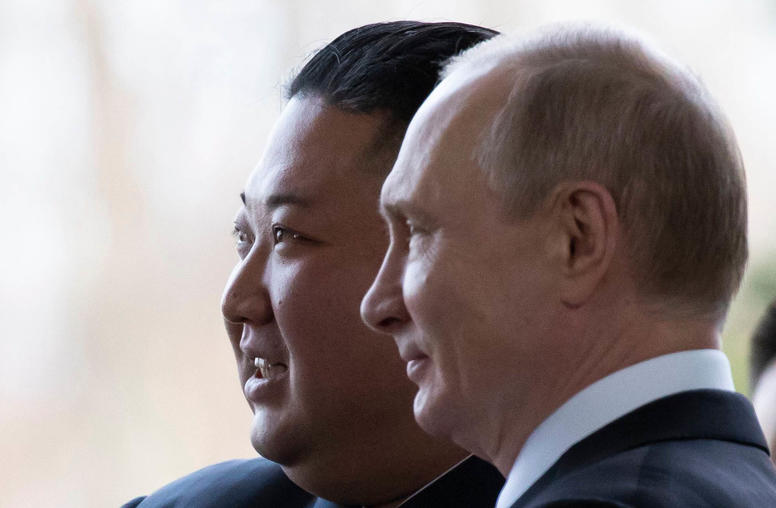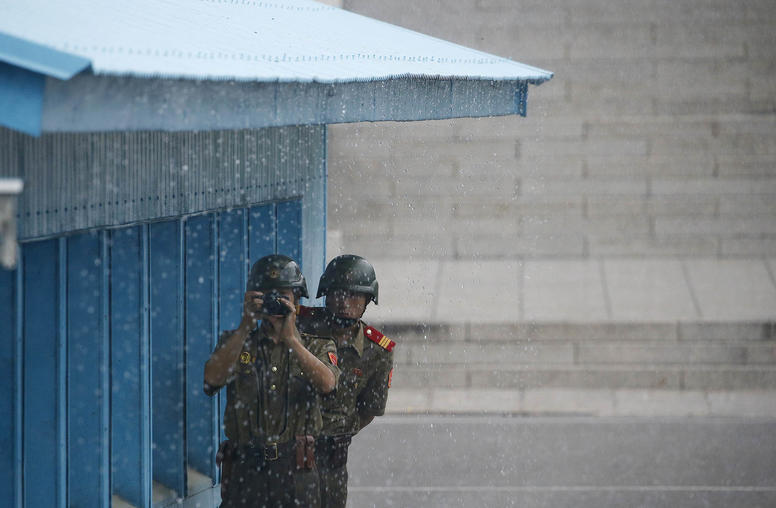Assessing North Korea’s Missile Launch
North Korea, in defiance of international calls, launched a two-stage ballistic rocket on December 11, reportedly putting into orbit a satellite. Michael Lekson, an arms control expert, examines what this development means.

North Korea, in defiance of international calls, launched a two-stage ballistic rocket on December 11, reportedly putting into orbit a satellite. The North Korean move is widely viewed as a setback for the possible resumption of nuclear arms control negotiations involving six countries, including the United States. It is also seen as a further step by North Korea in the direction of achieving the capability to deliver nuclear warheads on ballistic missiles. Michael Lekson, director of gaming for the Academy for International Conflict Management and Peacebuilding of the U.S. Institute of Peace, examines what this development means. Lekson joined the Institute’s Professional Training program in 2003 as a program officer. He came to the Institute following a 26-year career in the Department of State, where he was deputy assistant secretary of state for arms control, overseeing all multilateral arms control negotiations and treaty implementation, for which he received the secretary’s Distinguished Service Award. Prior to that, Lekson was deputy to the special representative of the president and the secretary of state for implementation of the Dayton Peace Accords. Lekson was also director of the Office of European Security and Political Affairs, where he helped develop and implement policies to adapt NATO to the post-Cold War world, and of the Office of United Kingdom, Benelux, and Ireland Affairs, where he worked intensively on the Northern Ireland peace process.
What capabilities does North Korea gain by having conducted this missile launch? Does this launch success significantly advance their progress toward achieving a multistage, transcontinental missile?
I think it does. The experts will be looking closely at the details in the coming days and weeks. But let’s look at history. The first satellites placed into orbit by the United States and the USSR were launched on missiles that were developed for military purposes—an intercontinental ballistic missile (ICBM) in the Soviet case, a shorter-range missile in ours. While there are important additional issues related to guidance-system capabilities, devising a suitable nuclear warhead and re-entry vehicle, and other matters, the fact that North Korea has been able to use a missile to put some kind of payload into orbit means that it has made significant progress toward having an ICBM capability. They have passed an important threshold.
Is it now, in theory, able to deliver a nuclear payload, or do the North Koreans still have work to do on miniaturizing a nuclear warhead that could be carried on a missile?
This is another case where the experts and the intelligence community will be looking very carefully at all the evidence. Being able to make a version of a nuclear explosive device suitable for delivery on a ballistic missile is a demanding task in and of itself. But clearly, the North Koreans have made significant progress on both the nuclear and the ballistic missile fronts, and as a result of this missile launch, they are closer to having the capability to use a strategic ballistic missile to deliver a nuclear weapon than ever before.
What does the launch do to prospects for returning to the dormant Six-Party nuclear talks, which anticipated the verifiable end of North Korea's nuclear weapons programs in return for political, diplomatic, and economic incentives?
For North Korea to return to the Six-Party Talks has been a United Nations Security Council (UNSC) requirement for some time now, but the regime has paid that demand no heed, just as it has disregarded UNSC demands not to conduct further ballistic missile launches. These talks are an essential way of ensuring that, along with the United States, the countries that are most directly affected—U.S. allies South Korea and Japan, as well as North Korea’s two other neighbors, China and Russia—are directly involved in dealing with the threat that it poses to regional and global security.
But just getting North Korea back to the talks wouldn’t end the problem; it would just give us a forum for trying to resolve it. And even if they resume, the talks won't get anywhere unless the North Korean government is willing to act as a responsible member of the international community. Even those who have studied North Korea for years have limited confidence in analyzing or predicting its behavior. Still, I agree with the general sense that China, which has better relations with North Korea than any other country, is likely to have more influence than anyone else. But even China's influence is limited, and like every other nation, it has its own concerns and interests.



